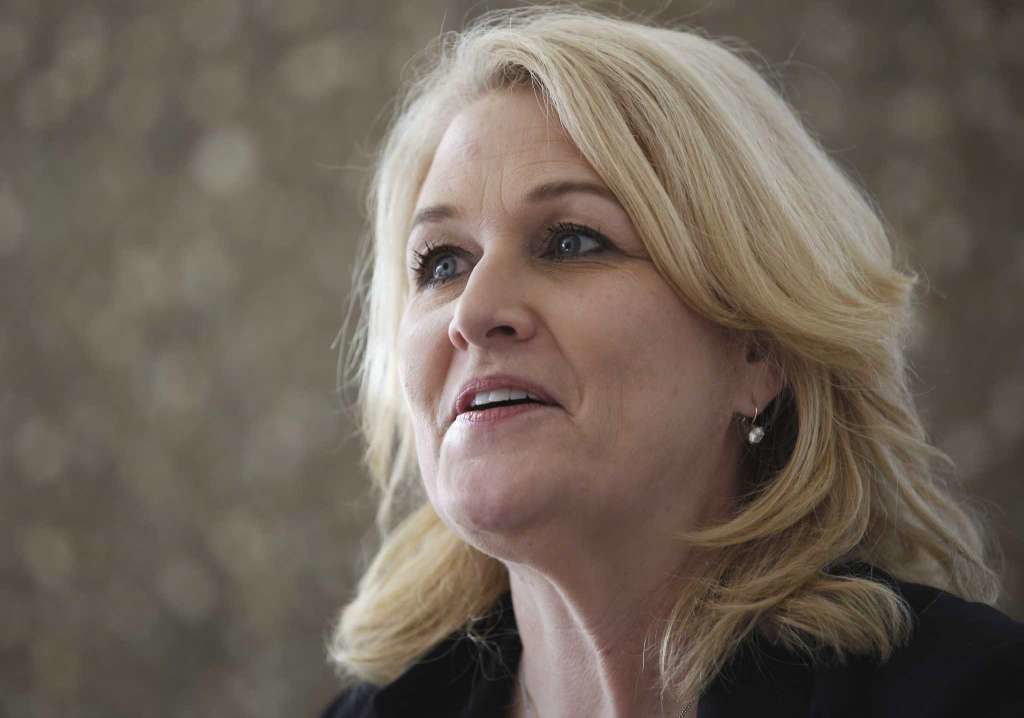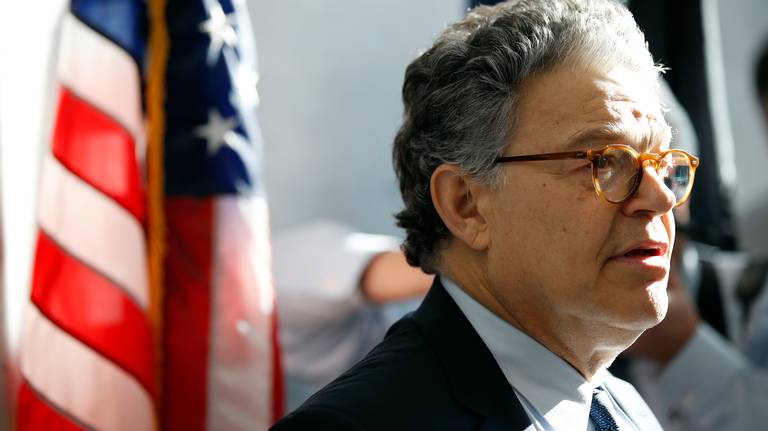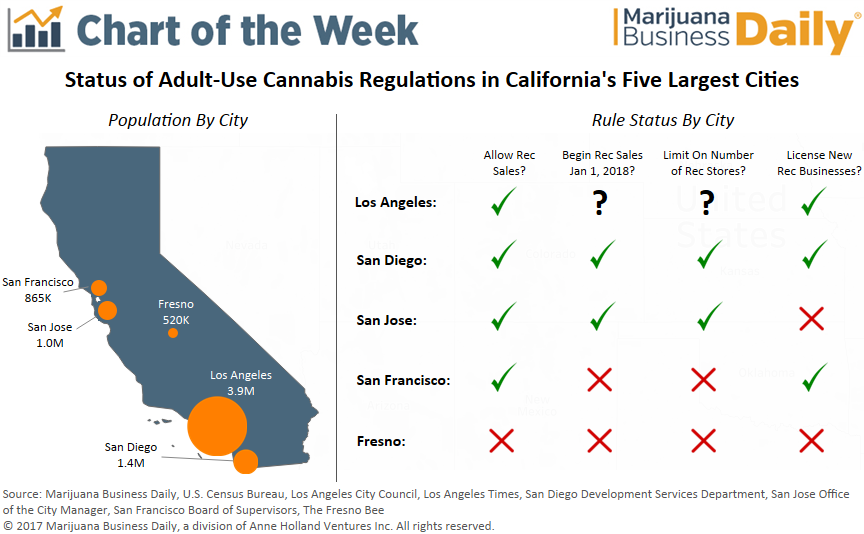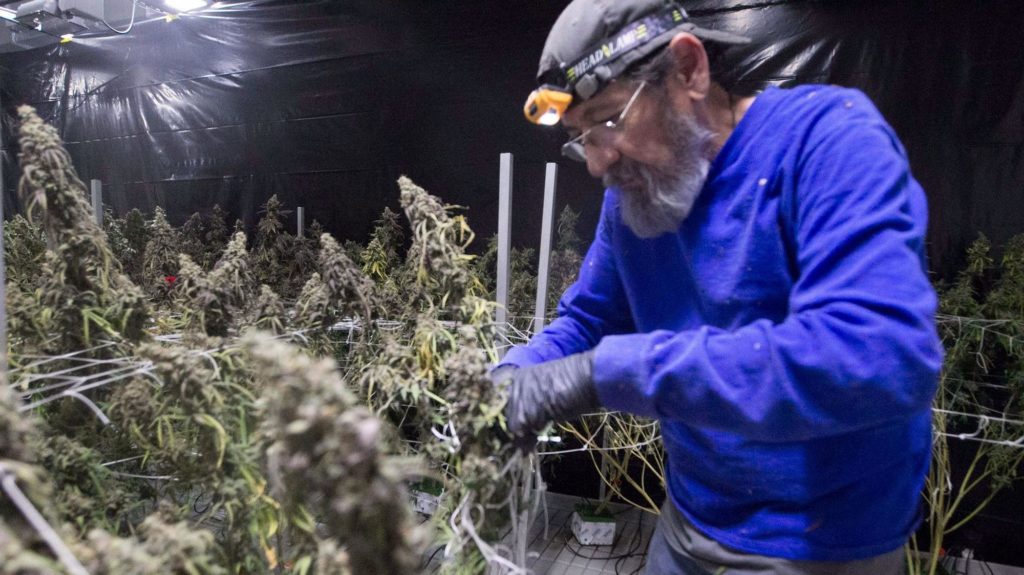Browsing the inventory at Apothekare in Kearny Mesa, there is a lot to choose from. The permitted medical marijuana dispensary, sandwiched between an Italian car dealership and a sex shop, has dozens of cannabis strains and cannabis-infused products, including beverages, cookies, candies, honey, topical creams and tinctures.
The supply comes from across the state of California, from the far north in Humboldt County to industrial sites near the Mexican border, said Chris Boudreau, chairman of the San Diego Cannabis Business Association. Boudreau also owns a marijuana distribution company, Sunstone Distribution, which pairs dispensaries like Apothekare with cultivators and manufacturers to stock their shelves.
On Monday, the San Diego City Council is scheduled to vote on how — or whether — to permit nonretail cannabis businesses. City staffers are proposing two options: The first would ban all businesses but testing facilities. The second would allow cultivation, manufacturing, distribution and testing, but cap the number of businesses at two per council district. Both proposals would limit the businesses to industrial-zoned areas, away from homes, schools and other sensitive land uses.
Boudreau said the stricter of the two proposals would choke off the permitted marijuana dispensaries, potentially giving away market share to more unscrupulous players in the black market.
“It’s like building half of a building,” he said. “You need to have the intelligent structure all the way around.”
Council members already rejected an all-out ban on the so-called marijuana supply chain in January, instructing city staff to come back with alternative proposals later in the year. The proposals were ready in July, but Council President Myrtle Cole delayed them to Sept. 11.
“You’re transporting long distances a product that is sensitive, that might be ripe for ambush or for theft,” Ward said. “Being able to keep that in closer proximity to the point of sale, where additional security measures are a little more fixed, is important.”
Ward also said two nonretail cannabis businesses per council district was likely not enough to create a functional local supply chain.
“If you did not design a very controlled way that we can have facilities and supply exist here in the city of San Diego, then we’re not able to really capture the entirety of the demand and of the market that’s out there,” he said. “If we do that responsibly, we’re able to maximize the economic impact for the city.”
Economic impact could be the biggest incentive for city officials to allow the local, legal cannabis industry to prosper. A complete ban on cultivation and manufacturing could make San Diego ineligible for cannabis tax dollars collected by the state under Proposition 64, which set the stage for legal sales of recreational cannabis next year.
San Diego voters last year also passed a local cannabis business tax, Measure N, which applies to cultivators, manufacturers and distributors. That could provide millions of dollars in new revenue to the city’s cash-strapped general fund, which pays for everything from infrastructure to police salaries.
credit:420intel.com













